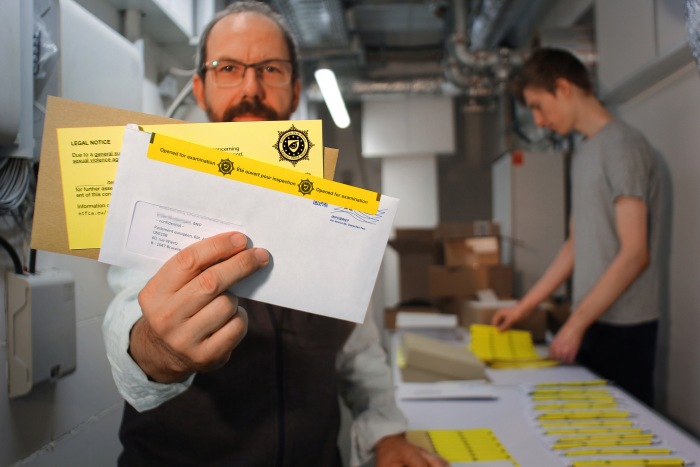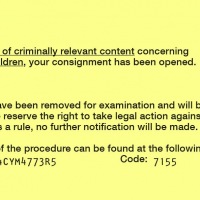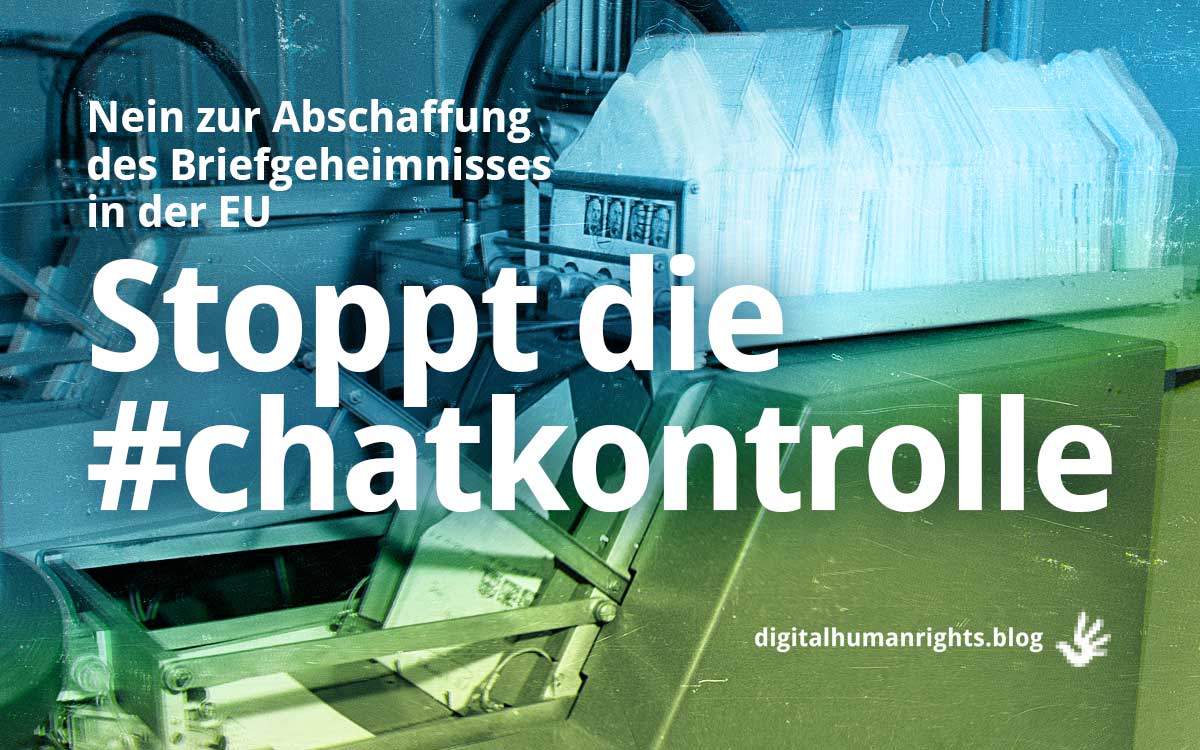#Chatcontrol: Taking Action Against the Abolition of Digital Privacy
Why the "European Task Force on Child Abuse" opened letters to EU parliamentarians

privacy_aktion_eu1.jpg
EU parliamentarians received unusual mail. Photo: Varvara Borodkina / gbs
Citizens have a right to confidential communication - that's what the European Charter of Fundamental Rights says. But members of the European Parliament recently received suspicious mail: The letters have been torn open, inspected by a "European Task Force against Child Abuse" and sealed with a warning label. Those taking a closer look discover that this is a campaign by the Giordano Bruno Foundation (gbs), protesting against the planned search of private chats and emails.
Past experience from the NSA wiretapping scandal showed that politicians often only react when they themselves are affected. And who wants to be associated with child pornography? What the EU parliamentarians experienced as part of the gbs letter campaign could soon happen to everyone in the EU in a slightly different guise, explains Peder Iblher, Digital Fundamental Rights Consultant at the Giordano Bruno Foundation: "The EU Commission's current draft law, the so-called 'ePrivacy Derogation', which will likely be submitted to the European Parliament for a decision as early as July 6, stipulates that sexually ambiguous content will automatically be shared with the police or an NGO and placed in the same category as child abuse. The law clearly violates European fundamental rights, but hardly any parliamentarians dare to argue against the justification of fighting child abuse."
The law does much more harm than good, Iblher explains: "Experience with such screening methods shows that the margin for error is extremely high, charges are hardly ever filed, and seasoned perpetrators have long since used other channels. A climate of uncertainty and suspicion, criminalization of young people and the risk of leaks, hacks and abuse could be a high price to pay for little effect. Most offenses remain offline anyway and would be far better stopped with prevention efforts and properly resourced policing."
A first step toward comprehensive mass surveillance?
Providers will initially have the choice of searching all chat messages: So anyone who uses certain applications in the future would be required to agree to it. In the second step, however, the creation of a mandatory monitoring infrastructure is already planned: "That would de facto mean the end of electronic secrecy of correspondence in Europe," says Iblher. "In a further step, there is even talk of circumventing encryption. The bitter consequence is obvious: If privacy is criminal, only criminals have privacy. Since they find ways to circumvent the controls."
The letter campaign initiated by Iblher is intended to demonstrate to EU parliamentarians what it means "when your own correspondence is scrutinized and anyone and everyone could suddenly find themselves in the crosshairs of investigations": "Even an intimate selfie taken by young people would find its way to the police, where it would be examined, analyzed, and perhaps kept. If the state is allowed to snoop around everywhere, what remains private? Who's to say that searches won't be subjected to political interests in the blink of an eye? And who knows if all the employees of the NGOs and police involved are trustworthy?"
***
Gallery: Pictures of the initiative and Patrick Breyer's reaction (MEP)
72 percent of Europeans against mass surveillance
The letter to EU parliamentarians, signed by Peder Iblher and gbs board spokesman Michael Schmidt-Salomon, lists the main arguments against unconditional mass surveillance. The authors also refer to the express opinion of the European population. According to a representative survey, a clear majority of 72 percent of European citizens oppose the warrantless search of their electronic communications.
In their letter, which can be co-signed on OpenPetition.org, Iblher and Schmidt-Salomon emphatically point out that the Giordano Bruno Foundation has been committed to children's rights for many years and works closely with many victims of sexual abuse. The foundation thus stated that it is all the more important that the good purpose, i. e. the prevention of sexual violence against children, is not abused to legitimize a bad means, i. e. mass surveillance without any indications. Its final appeal to the EU parliamentarians: "Crimes against children are terrible and demand decisive action! But surveillance of our communications without any indication is completely inappropriate and creates a climate of mistrust in Europe. We therefore urge you to oppose the bill in the upcoming vote!"
- More information: digitalhumanrights.blog
- Petition: "Stoppt die #Chatkontrolle!"
Further links:
- "Wie können wir es aussehen lassen, als würden wir etwas tun?” Why Alexander Hanff (IT expert and abuse victim) criticizes the EU draft law on "partial digital ePrivacy Derogation" (digitalhumanrights.blog, 6.7.2021)
- Kampf gegen sexuellen Missbrauch: Massenüberwachung im Netz für mehr Schutz (Tagessschau, 6.7.2021)
- Wie die EU verschlüsselte Chats kontrollieren will (Tagesspiegel, 6.7.2021)
- Widerstand gegen die Ausweitung der Chatkontrolle: Pressemitteilung von Patrick Breyer (MdEP) zur Verabschiedung des Gesetzentwurfs (6.7.2021)
-
EU-Parlament erlaubt flächendeckende Scans nach Kinderpornografie (heise.online, 7.7.2021)
-
Background: Legal opinion by Prof. Dr. Ninon Colneric (former judge at the ECJ and advisor at the Institute für Weltanschauungsrecht (ifw - Institute for Secular Law)






